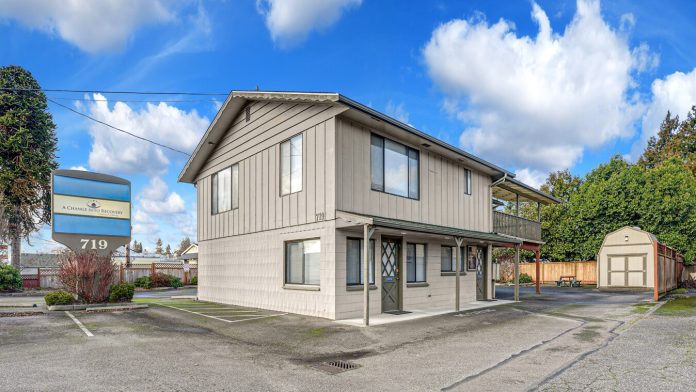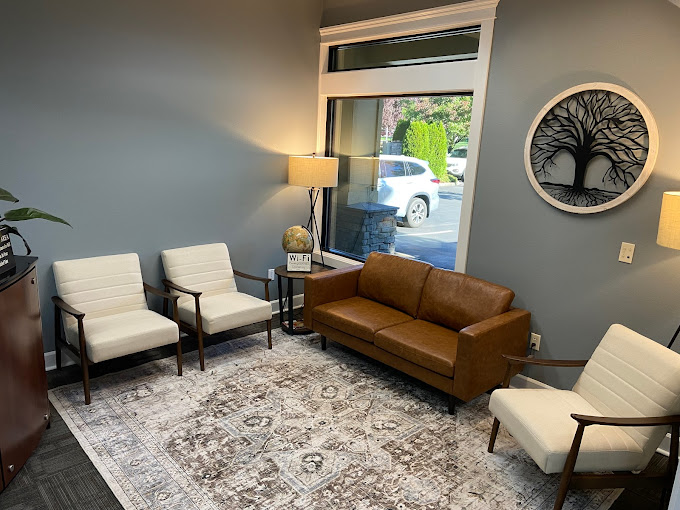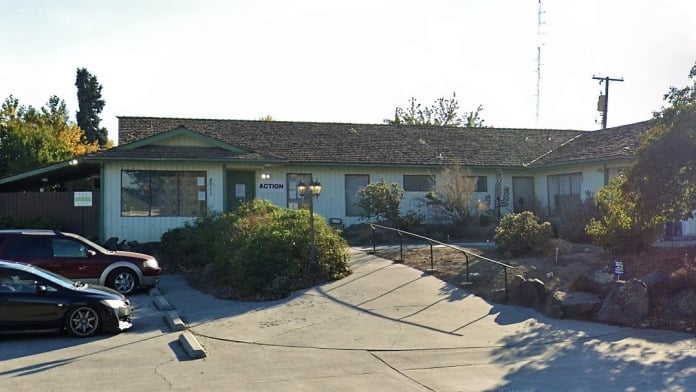Explore a comprehensive guide to 14 inpatient, 20 outpatient, and 7 detox centers across Washington. Compare costs, reviews, and treatment options to find the perfect rehab facility for your needs.

 | A Change Into RecoveryA Change into Recovery in Puyallup, Washington, is dedicated to helping individuals overcome substance use disorders and transform their lives. The center offers a range of personalized treatment options, including detoxification, residential programs, and outpatient services, all designed to support clients on their recovery journey. With a focus on holistic approaches and evidence-based therapies, A Change into Recovery fosters a nurturing environment that empowers individuals to achieve lasting healing. If you or a loved one is seeking support, take the first step towards a brighter future with A Change into Recovery. 719 E Main Ave, Puyallup, WA 98372 | Levels of Care:outpatient Payment Options:Private Insurance Self-Pay Options | ||
 | A New Life Christian CounselingA New Life Christian Counseling, located at 11105 NE 14th St #103, Vancouver, WA 98684, offers faith-based counseling services designed to support individuals and families seeking emotional and spiritual healing. The center provides a range of therapeutic services, including individual counseling, marriage and family therapy, and group sessions, all grounded in Christian principles. With a commitment to fostering personal growth and resilience, the experienced team at A New Life Christian Counseling is dedicated to helping clients navigate life\'s challenges and find hope and renewal. Discover the supportive resources available at A New Life Christian Counseling and take the first step toward a brighter future. 11105 NE 14th St #103, Vancouver, WA 98684 | Levels of Care:outpatient Payment Options:Self-Pay Options | ||
ABHC - Associated Behavioral Health CareABHC - Associated Behavioral Health Care | Payment Options:Private insurance | |||
ABHC - Associated Behavioral Health CareABHC - Associated Behavioral Health Care | Payment Options:Private insurance | |||
ABHC - Associated Behavioral Health Care - West SeattleABHC - Associated Behavioral Health Care - West Seattle | Payment Options:Medicaid | |||
ABHS - American Behavioral Health SystemsABHS - American Behavioral Health Systems | Payment Options:Medicaid | |||
 | Action Counseling: Kennewick, WAAction Counseling, located at 4911 West Canal Drive, Kennewick, WA, is a private alcohol and drug rehabilitation facility that specializes in treating a variety of substance abuse addictions, including alcoholism, co-occurring mental health disorders, and opiate addiction. The center offers flexible outpatient addiction therapy, enabling patients to receive regular treatment while continuing to live at home. This flexibility is designed to help individuals maintain their daily responsibilities while working towards recovery. In addition to outpatient services, Action Counseling provides various levels of care, including partial hospitalization, intensive outpatient programs, and relapse prevention strategies. Their comprehensive approach aims to support clients in achieving lasting recovery and improving their overall quality of life. 4911 W Canal Dr, Kennewick, WA 99336 | Levels of Care:Inpatient12-StepoutpatientAftercare SupportPartial Hospitalization Program (PHP)Intensive Outpatient (IOP) Payment Options:Medicaid Private insurance Self-Pay Options Financial Aid Medicare Military Insurance | ||
Action Vocational ResourcesAction Vocational Resources | Payment Options:Self-pay options | |||
Adams County Integrated Health Care ServicesAdams County Integrated Health Care Services | Payment Options:Medicaid | |||
Addcare Counseling WestAddcare Counseling West | Payment Options:Self-pay options | |||
Adepartment Assessment CenterAdepartment Assessment Center | Payment Options:Medicaid | |||
Adepartment Assessment CenterAdepartment Assessment Center | Payment Options:Private insurance | |||
ADEPTADEPT | Payment Options:Private insurance | |||
Adonai Counseling and EmploymentAdonai Counseling and Employment | Payment Options:Medicaid | |||
Advanced Comprehensive TreatmentAdvanced Comprehensive Treatment | ||||
Advocates for WellnessAdvocates for Wellness | Payment Options:Private insurance | |||
Aegis Treatment CentersAegis Treatment Centers | ||||
Affinity Counseling and Treatment12503 Se Mill Plain Boulevard Suite 119-A Vancouver WA, 98684 | Payment Options:Private insurance Self-pay options Sliding scale payment assistance Medicaid | |||
Affordable Ignition InterlockAffordable Ignition Interlock | ||||
Agape UnlimitedAgape Unlimited | Payment Options:Medicaid |
Find Washington drug rehabs in cities near you or sort by letter.
For anyone seeking help for addiction for themselves or a loved one calls to Addiction Helpline America are completely confidential and available 24/7.
Please note: any treatment center listed on our site that receives calls is a paid advertiser.
Calls to a specific treatment center’s listing will be connected directly to that center.
Calls to our general helpline will be answered by treatment providers, all of whom are paid advertisers.
By calling the helpline, you agree to our terms and conditions. These calls are free of charge and carry no obligation to enter treatment. Neither Sober Steps nor anyone answering your call receives a commission or fee based on your choice of treatment provider.
If you’d like to explore additional treatment options or connect with a specific rehab center, you can browse our top-rated listings, visit our homepage, or call us at (844) 561-0606. You may also contact us for further assistance.
Calls to any general helpline will be answered or returned by one of the treatment providers listed, each of which is a paid advertiser:
Our helpline is available 24 hours a day, 7 days a week at no cost to you and with no obligation for you to enter into treatment. We are committed to providing support and guidance whenever you need it.
In some cases, Addiction Helpline America charges our verified partner a modest cost per call. This fee helps us cover the costs of building and maintaining our website, ensuring that we can continue to offer this valuable service to those in need.